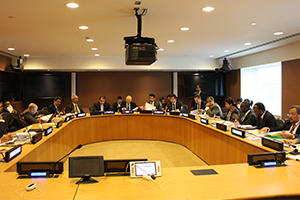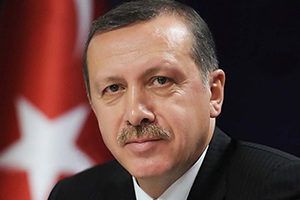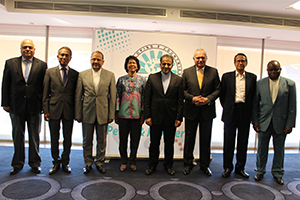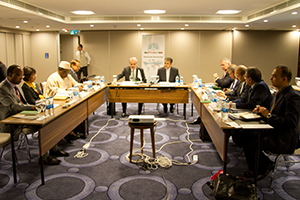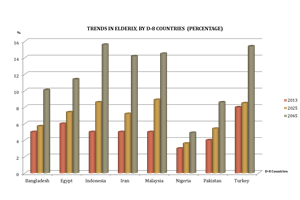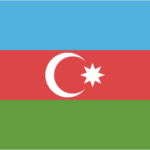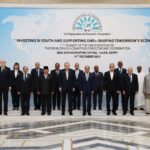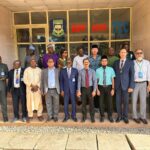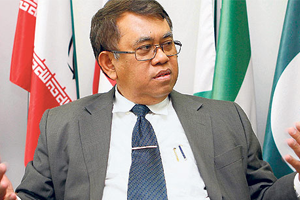
On June 15, 1997, the heads of state or government of Bangladesh, Egypt, Indonesia, Iran, Malaysia, Nigeria, Pakistan and Turkey, meeting in ?stanbul, proclaimed their decision to establish the Developing Eight Organization for Economic Cooperation — popularly known as the D-8.
As I look back at the performance of the organization since its creation 15 years ago, I believe remarkable progress has been achieved. The statistics for the level of cooperation in various sectors support this overall positive assessment. Just to cite an example, the quite substantial increase in intra-D8 trade can indeed point to the organizations success. Since I joined D-8 back in July 2010, I have witnessed the organization make substantial, solid progress in a number of fields and areas. The gradual but steady progress in the organizational development of our new grouping is, for example, reflected in the formal establishment of the D-8 Secretariat almost a decade after the organization came into existence. Headquartered in ?stanbul, the secretariat serves as the central coordinating mechanism for all D-8 activities. It serves to coordinate and hold the meetings of the principal organs of the organization at the three levels of high-level experts (commission), council of ministers and the summit, as well as technical meetings in various sectors.
On the organizational progress, I think it is extremely important that we have succeeded in developing the D-8 Charter, as the overarching legal instrument defining and regulating all its activities. The draft charter, which had been prepared by the secretariat, has already been discussed and cleared by the commission, and will be adopted by the next summit before the end of the year. Once ratified by the member countries, the charter will definitely serve to further institutionalize the state of cooperation among the membership and also boost its image as a model for economic cooperation. At the practical level, intra-D8 cooperation has been facilitated and continuously promoted through the medium of working groups and task forces, especially since 2008, when the member countries agreed in Kuala Lumpur to establish the 10-year 2008-2018 Roadmap with focus on the five priority areas of trade, industry, agriculture, transportation and energy.
Another area of the work — and success — of the organization concerns the development of the legal instruments required for the regulation of its activities and cooperation in the areas and fields considered critical. The conclusion and entry into force of the Visa Agreement, the Customs Agreement and the Preferential Trade Agreement (PTA) have served to facilitate, regulate and promote actual cooperation among the organizations members. Among these legal instruments, I attach particular importance to the Trade Agreement, which entered into force almost a year ago. Its full implementation will epitomize the real success of the organization and increase the intra-D-8 trade volume from the current level of 7.06 percent of the total trade with the world to 10-15 percent by the year 2018 — which was also among the targets established by the Roadmap.
While, as the secretary-general, I tend to have an overall positive outlook and assessment of the D-8 achievements during its first 15 years, I also believe that we need to be realistic and objective, especially with regard to the challenges lying ahead and what we as a group need to do in the future. We all have to be cognizant of the fact that we are living in a dynamic, fast-moving developing world. We as an organization, and each individual member country, even though to differing degrees, all have to grapple with the multi-dimensional impact of the still unfolding globalization process. And, it is hardly any reassuring that we all have to live in and interact with such a highly competitive world out there.
To stay the course and to make a difference, I believe we are in urgent need of real, hard work in a number of areas. Increasing public awareness of the organization and its activities, first and foremost within the D-8 community and subsequently on a larger scale, is certainly one of our priorities ahead. Moreover, while we should expand liaison and cooperation with other economic and regional groupings and multilateral arrangements, we really need to help the organization project itself effectively at the international level and play the bigger role it deserves.
I look to the future of the D-8 with hopeful eyes, even if objectively and with a sense of realism. I am optimistic, but with my feet on the ground. The organization, in its entirety, enjoys tremendous potential in various fields and areas. We, collectively, should be able to devise ways and means to tap them effectively and actualize them towards advancing the state of our cooperation and make a meaningful contribution to the development and welfare of the eight member countries.
To continue moving forward and to achieve success — that is, to reach the targets set collectively, e.g., the quantitative targets of the 2008-2018 Roadmap — the organization needs a much more strengthened secretariat — much bigger than its current compact size and strength. And, of equal importance, the organization needs to develop a long-term mechanism for sustainable economic cooperation. I believe this is quite a big challenge for us; we all have to address and deal with it as we continue our common journey.
*Dr. Widi A. Pratikto, an Indonesian with academic and public service experience, is the secretary-general of the D-8.










